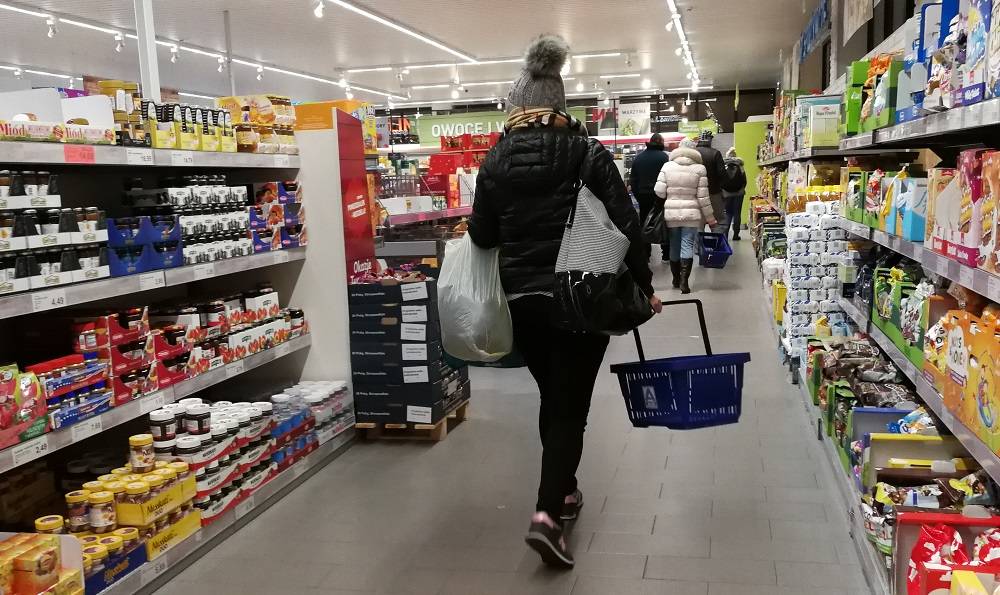Currently, over 90% of consumers make at least some of their grocery purchases on sale, an increase of 3 percentage points from the previous year. Most of them can specify what proportion of their bought food they purchase at a discount. Just below 30% of respondents point to the range of 20-40%, 23.2% of respondents report 10-20%, and 18.2% of those surveyed declare 40-60%. Experts predict that the importance of promotions will rise in the near future due to inflationary pressure and the start of the approaching holiday shopping season.
In a survey conducted for the “Blix Awards – Consumer’s Choice” project, 29.7% of consumers indicated that 20-40% of their regular grocery purchases were acquired on sale. When a similar survey was carried out in August 2023, 28.8% of the respondents selected this same answer. According to experts, this result mainly reflects inflationary pressure and rising living costs.
“Polish consumers are increasingly using promotions to balance their budgets, especially those with lower incomes, who are more sensitive to price changes. Compared to developed markets, this percentage can be deemed moderate, given promotions play a crucial role in purchases in Poland,” explained Marcin Lenkiewicz, Vice President and long-time retail market expert of the BLIX Group.
The percentage of promotional items in purchases (20-40%) was more commonly chosen by men than women. Moreover, it was mostly chosen by those in the 25-34 age range, with a net monthly income of 7,000-8,999 PLN, higher education, and from cities with a population of 200,000-499,999.
“Even if it turns out that customers slightly overestimated the amount of purchased food on sale, possibly due to advertising influence, it’s still a relatively high percentage. It shows that a significant portion of Polish society regularly purchases food on sale. The survey results verify the relevance of launching promotional food sales,” notes Dr. Urszula Kłosiewicz-Górecka, Senior Analyst in the Economic Foresight Team at the Polish Economic Institute.
Other common responses included 10-20% of grocery purchases being discounted, as reported by 23.2% of respondents, while 18.2% reported 40-60%. 8.7% of respondents claimed it was less than 10%, and 8.1% pointed to 60-80%.
“These results are very high, which means products without promotional information normally sell worse. We also shouldn’t forget about the bargain hunters wandering from store to store in search of deals. They’re not necessarily looking for the lowest price, but certainly a promotional one, because if it was regular price it wouldn’t likely attract interest,” analyzes Dr. Maria Andrzej Faliński, Vice President of the Association of Economic Dialogue Forum.
In the study, 6.2% of respondents said they could not determine the significance of promotions in their shopping. 3.8% of respondents claimed over 80% of their purchases were on promo, while 1.8% of poll participants stated they only buy on sale. 0.3% claimed they do not buy anything during such promotions.
“On one hand, these results could be due to the escalating price war between discounters in Poland, which has reinforced the importance of promotions in Polish purchasing strategies. Retailers have greatly increased their investments in promotional communication over the past year, resulting in greater consumer awareness. The growing popularity of apps displaying promotional flyers, which heavily promote using deal-finding tools, also plays a significant role,” evaluates Lukasz Moszynski from the BLIX Group.
From the study, 93.5% of respondents said they use promotions and can determine what percentage they constitute of their grocery shopping. Thus, only 6.5% said they do not make promotional purchases and could not determine their significance. In the previous year’s survey, this figure was 9.5%, with promotional-shopping supporters at 90.5%.
Piotr Biela of the BLIX Group notes that respondents’ answers may be somewhat inflated or deflated, since consumers can’t always accurately monitor their spending and the percentage of purchases made on promotion. Nevertheless, the overall trend vindicates the significant role of promotions in purchasing decisions, which is not likely to change quickly.
Marcin Lenkiewicz adds that the coming weeks will favor those focused on purchasing food on sale. The period leading up to Halloween, followed by Black Friday, is expected to bring a surge in food discounts. Furthermore, the pre-holiday shopping frenzy in December will likely spur consumers to seek even more promotional offerings to reduce holiday preparation costs.
Source: https://managerplus.pl/konsumenci-wciaz-funkcjonuja-w-trybie-oszczedzania-55442
